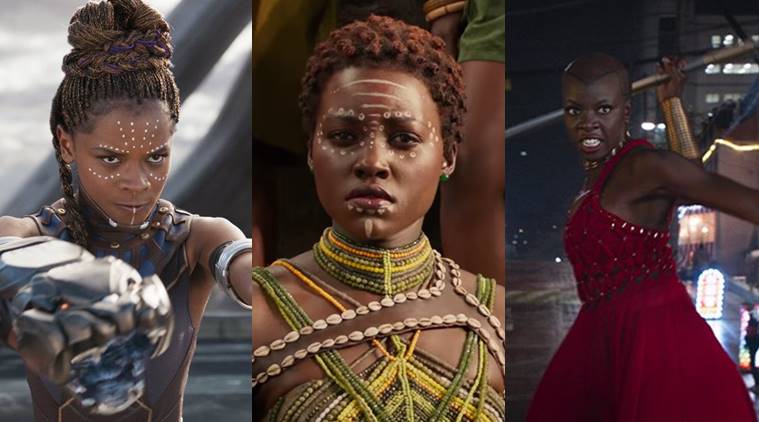Led by Black Panther aka King T’Challa, Wakanda is a fictional country in set in Africa that has successfully concealed its powers from the rest of the world to avoid conflict. But the Wakandan society is quite an inspiration for the real world that we live in.
While the King is the face of the operation and gains his superpowers by taking a heart-shaped herb, it is quite refreshing to notice that his counsel and allies are comprised mainly of women. Black Panther has four female characters that serve as the muscle, brain and the emotion of the film and it is their alliance with King T’Challa that makes for a balanced narrative.
At the Asia Premiere of Black Panther, Lupita Nyong’o said, “Wakanda has quite a lot to teach the world as we know it. It’s quite an ideal society and as far as the way men and women are allowed to realise their full potential. In terms of gender relations, it’s really progressive. And something that we can all appreciate and aspire to.”
Wakanda does not follow traditional gender stereotypes. In this fictional country, women and men have complete freedom to realise their full potential, whatever it might be. There is no discrimination between a man and a woman’s job, and that is something that the real world can definitely learn from. Here, women hold jobs that are not allotted to them on the basis of stereotypes but what makes them utilise their resources in the best way. The four pivotal women characters of Black Panther all have a significant role in the story.
Nakia, played by Lupita Nyong’o, is a spy who travels the world and saves the day wherever she sees injustice. She has a history with T’Challa and he turns to her when he seeks some much needed advice.
Shuri, played by Letitia Wright, is the tech behind the operation. Scenes from her lab have been shown in the trailers and it can be safely said that with vibranium on her side and her brilliant brain at work, she can give Tony Stark a run for his money.








